A new M7 co-processor and camera improvements round out the new features.

The 5S still has a four-inch 1136×640 display and a Lightning connector, and it retains the iPhone 5's taller and slimmer profile relative to older models like the iPhone 4 and iPhone 4S. However, it includes a new 64-bit "desktop-class" system-on-a-chip (SoC) dubbed the A7 that boosts CPU and GPU performance over the A6 in the iPhone 5.
The chip has twice the general-purpose and floating point registers of its predecessor and is up to twice as fast at performing CPU tasks. The phone supports OpenGL ES 3.0, and Apple claims that the graphics performance in the 5S is 56 times better than in the original iPhone released six years ago.
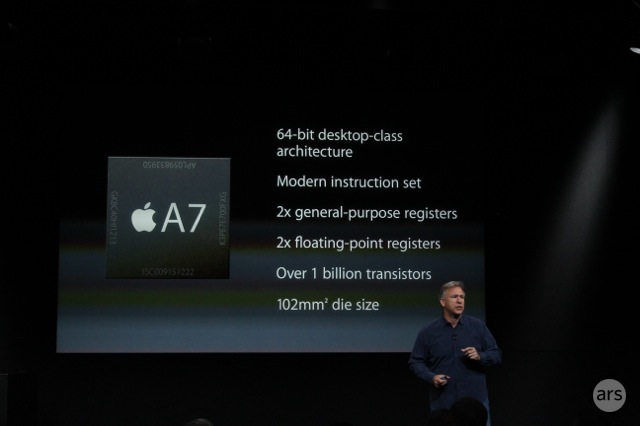
Apple is also upgrading the phone's camera with a new five-element lens at an f2.2 aperture and a 15 percent larger sensor. The company is opting for "bigger pixels rather than more," with 1.5-micron pixels.
The new "true-tone" flash uses dual LEDs (one warmer and one cooler) to account for the lighting in the room and to light the shot optimally according to the camera app's monitoring. Apple says that this will result in "more neutral skin tones and better colors." The iPhone 5S will also be able to take multiple photos with a single shutter trigger and then choose the best one automatically rather than saving the whole handful to memory.
Auto image stabilization and burst mode are new features in the camera, as is 120 FPS video captured at 720p resolution. The phone can also still capture 1080p video at 30 FPS.
A "Touch ID sensor" for reading fingerprints is embedded in the home button and can be used to unlock your phone in addition to the traditional software passcodes. A fingerprint is read at 500 PPI resolution and can scan sub-epidermal skin layers.
The sensor is encircled by stainless steel and has a layer of sapphire crystal to protect it. Apple notes that iOS 7 will "teach" the phone about each user's fingerprint so that the fingerprint-read will be frictionless regardless of the angle the user's finger comes at it; in theory, all it will require is a simple touch. The button will also still be clickable, as it has been on every previous iPhone.
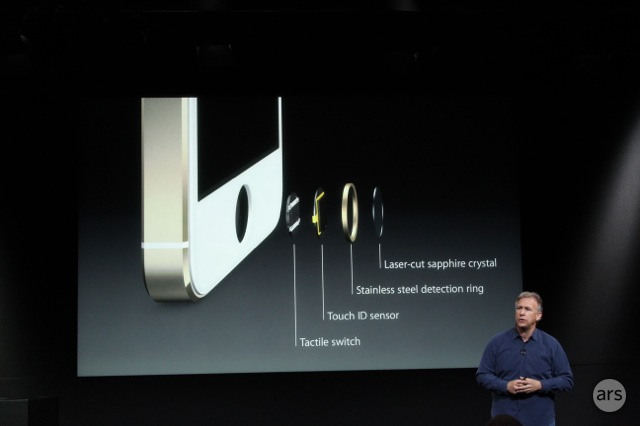
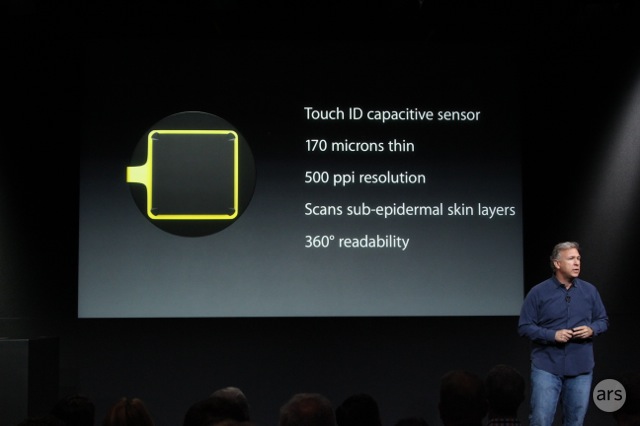
The phone will still be available in black and white, but Apple is adding a gold (or "champagne") color option for those of you who want to project an even greater air of affluence and privilege when you're poking at your hand-sized computer.
Battery life estimates are "equal to or greater" than the iPhone 5, with 10 hours of Wi-Fi browsing, 40 hours of music playback, and 10 hours of 3G talk time.
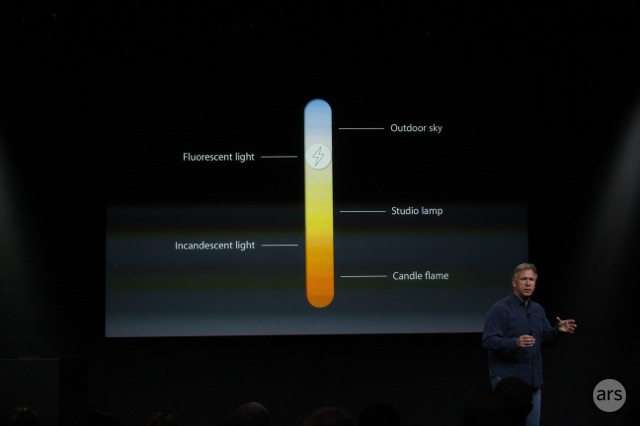
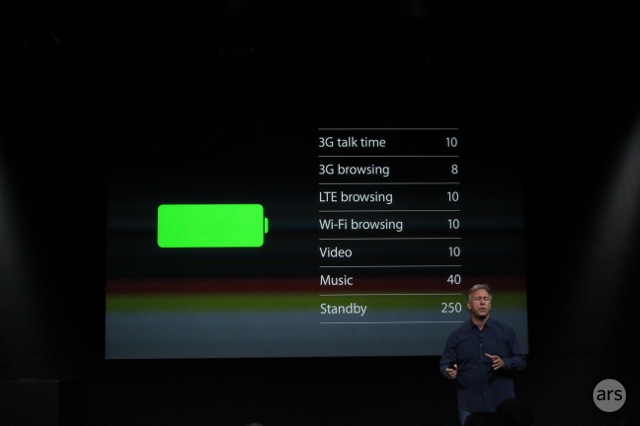
Per the historical iPhone price structure, the new iPhone 5S running iOS 7 will be priced at $199 for 16GB, $299 for 32GB, or $399 for 64GB with a two-year contract. The new model will go on sale September 20 in the US, Australia, Canada, China, France, Germany, Japan, Singapore, and the UK, and it will be in 100 countries total by December 2013. The phone was announced alongside the lower-end iPhone 5C, which will round out the lower price tiers for iPhone's line in lieu of deprecating the previous-gen phone.







0 comments:
Post a Comment